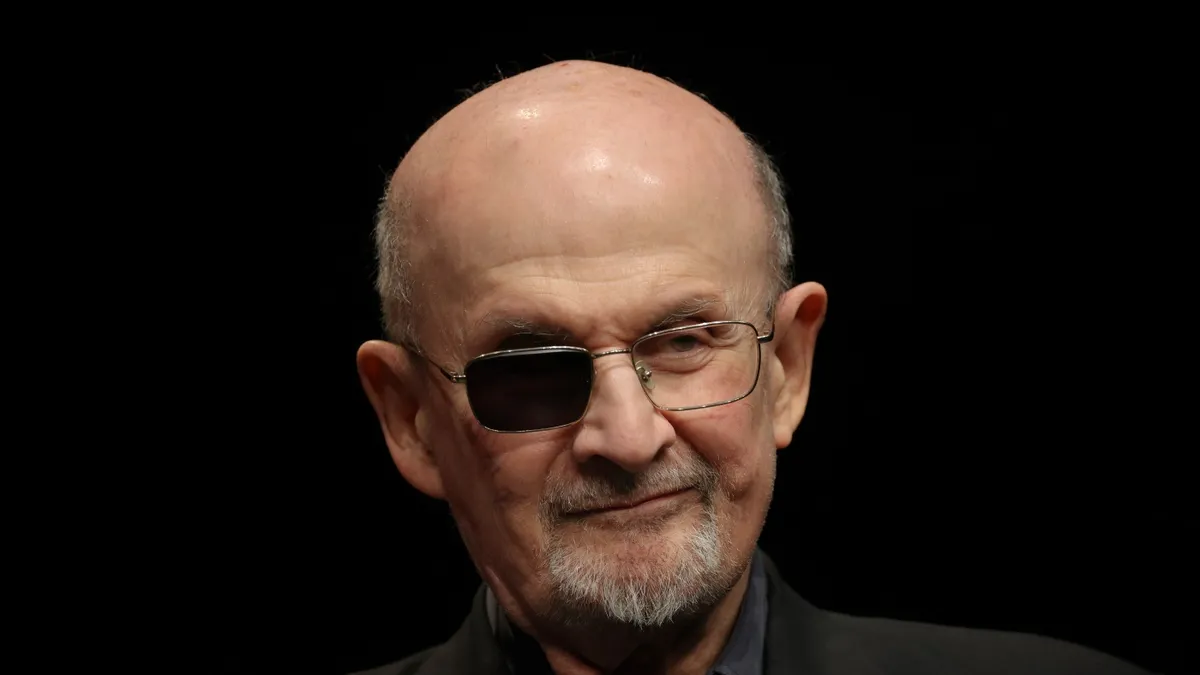
On Friday, Hadi Matar, the individual responsible for the brutal stabbing of renowned novelist Salman Rushdie in 2022, was sentenced to 25 years in prison — the maximum penalty for attempted murder. Matar, 27, was convicted of second-degree murder in February, stemming from the violent attack that occurred at the nonprofit Chautauqua Institution in New York State in August 2022.
During the attack, Matar leapt onto the stage where Rushdie was set to deliver a lecture, wielding a knife and stabbing the author multiple times in critical areas including the face, neck, arm, abdomen, and eye. This vicious assault has left Rushdie, now 77 years old, partially blind and suffering from permanent nerve damage. Although Rushdie did not attend the sentencing hearing at the Chautauqua County court in Mayville, N.Y., he submitted a poignant victim impact statement that highlighted the profound effects of the attack on his life.
Judge David Foley, presiding over the case, also sentenced Matar to an additional 7 years for injuring the moderator who bravely attempted to intervene during the attack. This concurrent sentence underscores the severity of Matar's actions and their broader implications.
Salman Rushdie’s novel, The Satanic Verses, published in 1988, ignited widespread outrage, particularly in the Muslim community, due to its controversial portrayal of the life of the Prophet Muhammad. Just months before Rushdie's death in 1989, Iran's Supreme Leader, Ayatollah Khomeini, issued a religious fatwa calling for Rushdie's assassination. At the trial, the U.S. Attorney's Office for the Western District of New York argued that Matar was acting under the influence of this fatwa.
While Matar, a resident of Fairview, New Jersey at the time of the attack, did not explicitly cite the religious decree as his motivation, he expressed a personal dislike for Rushdie. In a jailhouse interview with the New York Post, Matar claimed that the author had "attacked Islam," although he admitted to reading only a couple of pages of The Satanic Verses.
During the February trial, Rushdie provided powerful testimony, recounting the surprise he felt during the attack and the overwhelming amount of blood that poured from his wounds. Matar's defense team contended that the case was not as clear-cut as it appeared. Attorney Lynn Schaffer acknowledged the gravity of the situation, stating that something "very bad did happen," but emphasized that the prosecution needed to prove much more to secure a conviction.
In addition to the state charges, Matar is facing a separate trial on federal terrorism charges related to the attack on Rushdie. When these charges were filed last July, then-FBI Director Christopher Wray announced that Matar was attempting to fulfill a fatwa endorsed by Hezbollah, which called for Rushdie's death. If convicted on these federal charges, which include providing material support to terrorists and conspiracy to kill a U.S. citizen, Matar could face a life sentence. As of now, a trial date for these federal charges has not yet been established.